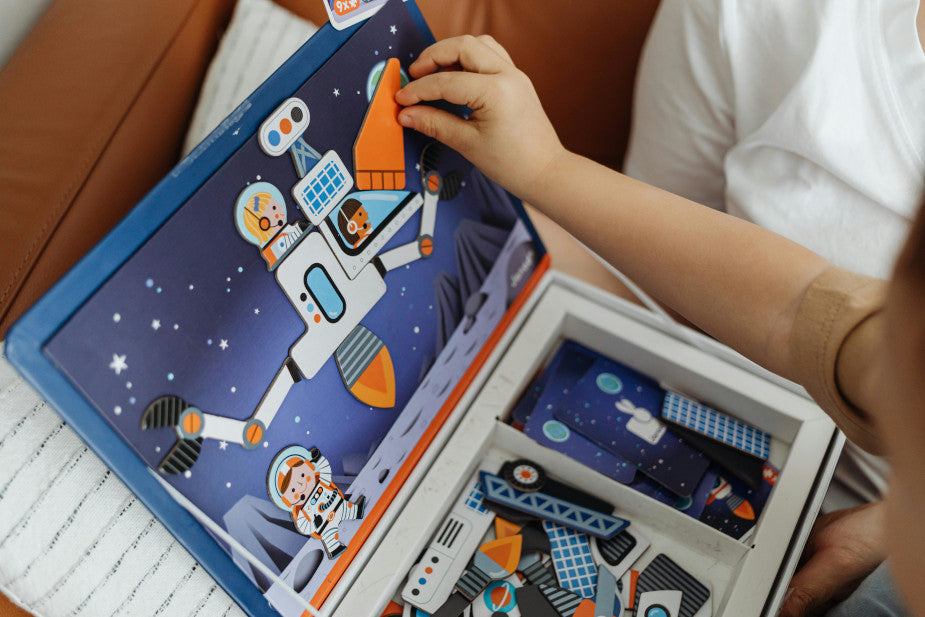
Beyond Entertainment: How Montessori Puzzle Books Foster Problem-Solving and Critical Thinking
Share
Puzzle books have long been a popular form of entertainment for children, offering hours of fun and mental stimulation. However, Montessori educators recognize that puzzle books offer far more than just entertainment—they provide valuable opportunities for children to develop problem-solving skills, critical thinking abilities, and perseverance. In this article, we'll explore how Montessori puzzle books go beyond mere entertainment to foster cognitive growth and development in young learners.
Montessori puzzle books are carefully designed to challenge children's minds and encourage them to think critically and creatively. Unlike traditional puzzle books that focus solely on completing puzzles, Montessori puzzle books often include a variety of activities that engage different aspects of cognitive development. These activities may include logic puzzles, spatial reasoning challenges, and visual perception exercises, among others.
One of the key principles of Montessori puzzle books is the emphasis on process over product. Rather than focusing solely on finding the right answer or completing a puzzle, Montessori educators value the process of problem-solving and the journey of discovery. Children are encouraged to approach each puzzle with curiosity, persistence, and a willingness to experiment, fostering a growth mindset and a love of learning.
Montessori puzzle books also promote important cognitive skills such as spatial reasoning, pattern recognition, and logical thinking. As children engage with the puzzles, they learn to analyze information, make connections between different pieces of information, and develop strategies for solving problems. These skills are not only essential for academic success but also for navigating the complexities of everyday life.
In addition to promoting cognitive development, Montessori puzzle books also support children's social and emotional growth. Working on puzzles encourages collaboration and cooperation as children share ideas, communicate their thoughts, and work together to solve problems. Puzzles also provide opportunities for children to experience the satisfaction of overcoming challenges and achieving success, building confidence and self-esteem in the process.
One of the unique features of Montessori puzzle books is their adaptability to children's individual interests and abilities. Montessori educators recognize that children learn best when they are engaged and motivated, so puzzle books are often designed to be age-appropriate and developmentally appropriate. Children are free to choose puzzles that match their interests and challenge them at an appropriate level, fostering a sense of autonomy and ownership in their learning process.
In conclusion, Montessori puzzle books offer far more than just entertainment—they provide valuable opportunities for children to develop problem-solving skills, critical thinking abilities, and perseverance. Through engaging with puzzles, children learn to approach challenges with curiosity, persistence, and creativity, laying the foundation for lifelong learning and success. Whether in the classroom or at home, incorporating Montessori puzzle books into children's learning experiences can spark their imagination, foster their curiosity, and inspire a love of problem-solving.


